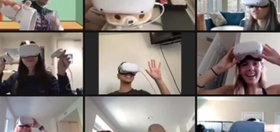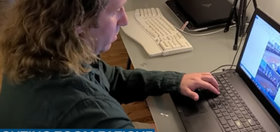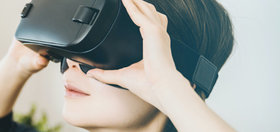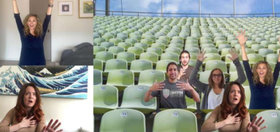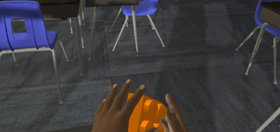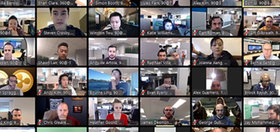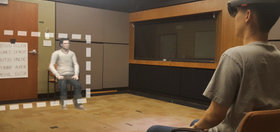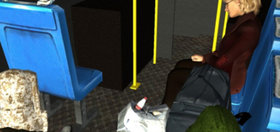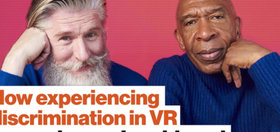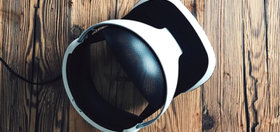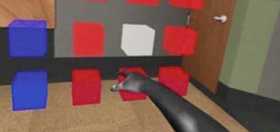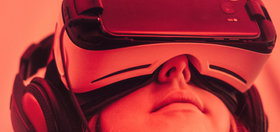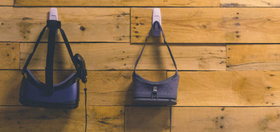News
-
Stanford course allows students to learn about virtual reality while fully immersed in VR environments
The innovative classroom experience lets students directly experience the wide-ranging possibilities of virtual reality as a cutting-edge medium.
November 05, 2021
-
Zoom fatigue worse for women | Stanford News
Prof. Jeff Hancock, Prof. Jeremy Bailenson and colleagues find that women report feeling more exhausted than men following video calls – and the “self-view” display may be to blame
April 13, 2021
-
Science proves Zoom meetings are awful. Here are tips to make them better | KCRW
Jeremy Bailenson talks with Madeleine Brand on KCRW’s Press Play podcast.
February 26, 2021
-
Causes for ‘Zoom fatigue’ and their simple fixes | Stanford News
Prof. Jeremy Bailenson’s research shows that popular video chat platforms have design flaws that exhaust the human mind and body.
February 24, 2021
-
What Are the Real Causes of Zoom Fatigue? | TODAY
And What Are the Possible Solutions? New Research from Stanford Offers Answers
February 24, 2021
-
September 18, 2020
-
Beam me out to the ballgame | SF Chronicle
Cardboard standees get old fast. With augmented reality, the fans can be live, interactive and a part of the action of the game.
August 19, 2020
-
June 28, 2020
-
March 10, 2020
-
May 15, 2019
-
Stanford Takes Students on Virtual Undersea Journey | NBC Bay Area
NBC Bay Area interviews VHIL researchers Geraldine Fauville and Anna Muller about the lab’s ongoing environmental and education research
January 08, 2019
-
October 18, 2018
-
How experiencing discrimination in VR can make you less biased | Big Think
What would it be like to live in the body of someone else? In this video Jeremy Bailenson describes how virtual reality experiences can increase empathy for others.
May 23, 2018
-
May 07, 2018
-
Virtual Technology with guest Jeremy Bailenson, The Future of Everything
Host Russ Altman interviews Jeremy Bailenson. Bailenson shares his insights on how Virtual Reality will be used as a tool for business, learning, and fun in the near future.
May 05, 2018
-
April 04, 2018
-
March 31, 2018
-
February 26, 2018
-
How VR can change your brain: Interview with “Experience on Demand” author Jeremy Bailenson | Recode
February 12, 2018
-
February 11, 2018

